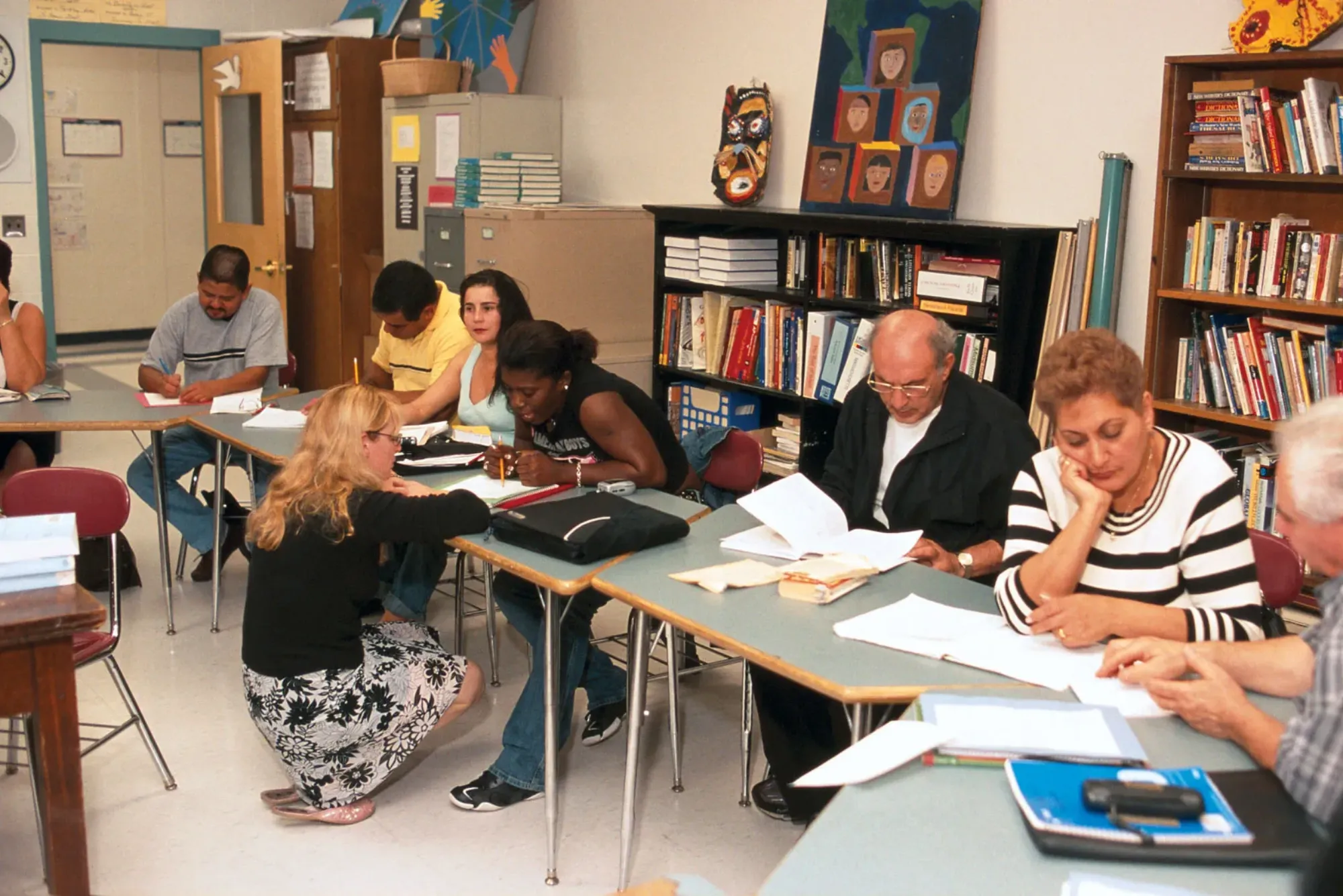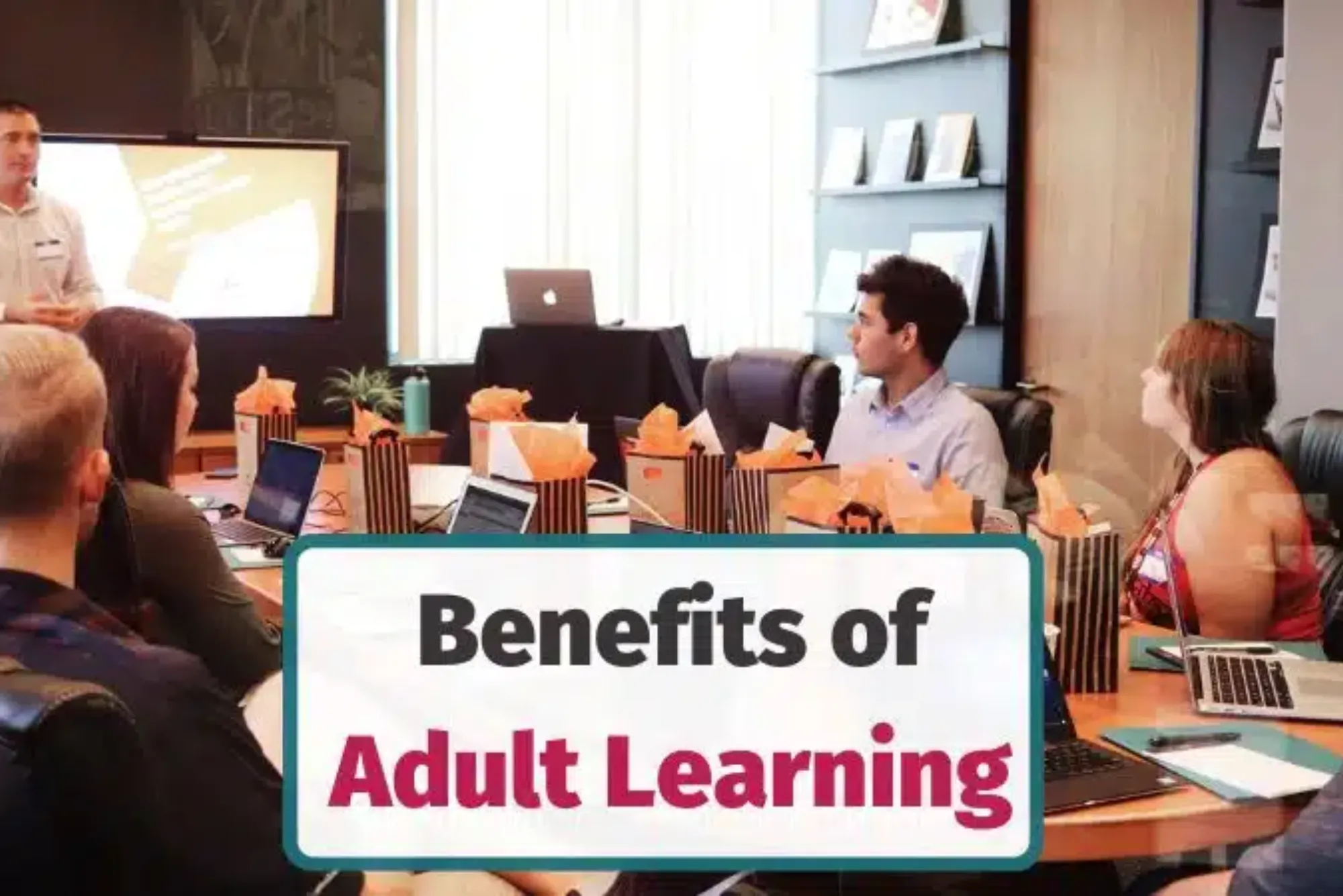Adult Education: Empowering Lifelong Learning
Adult education refers to any form of learning or educational programs designed for adults who are beyond the traditional age of schooling. It focuses on providing opportunities for people to enhance their knowledge, skills, and competencies to help them grow both personally and professionally. In today’s fast-paced, ever-changing world, adult education is more important than ever, as it enables individuals to adapt to new technologies, career shifts, and societal changes.
The growing demand for adult education can be attributed to the increasing need for continuous learning. With technological advancements and shifting job markets, lifelong learning has become crucial for career advancement and personal development. Adult education not only helps people advance in their careers but also empowers them to lead enriched and fulfilling lives.
Types of Adult Education Programs

Formal Education
Formal adult education programs typically include structured learning opportunities such as degree programs, diplomas, and certifications. These programs are usually offered by universities, colleges, and professional schools. Adults seeking to change careers or advance in their current professions may pursue a formal education to gain specialized knowledge and credentials.
Informal Education
Informal adult education programs are typically more flexible and less structured than formal education. They include short courses, workshops, and online learning platforms that offer specific skills and knowledge in areas such as cooking, language learning, art, or computer skills. Informal education allows individuals to learn at their own pace and according to their interests without the pressure of exams or formal assessments.
Vocational Education and Job Training
Vocational education and job training programs focus on equipping adults with specific technical skills that can directly lead to employment. These programs are often tailored to high-demand industries such as healthcare, IT, and construction. Vocational education programs may be short-term, hands-on experiences that provide participants with the skills needed to enter the workforce quickly.
Continuing Education for Personal Development
Continuing education for personal development focuses on improving one’s knowledge and skills for personal growth rather than for career advancement. This includes classes that help individuals develop hobbies, interests, or skills in areas like fitness, languages, or art. These courses often foster a sense of fulfillment and well-being and encourage lifelong learning.
Benefits of Adult Education

Career Advancement and Skill Enhancement
One of the primary reasons adults engage in education is to improve their careers. Adult education helps individuals acquire new skills, which can increase their job prospects, earning potential, and job satisfaction. Whether it’s learning new software programs, acquiring management skills, or gaining a certification, education opens doors to new opportunities and career advancements.
Personal Growth and Lifelong Learning
Adult education is not just about career progression; it also promotes personal growth. Engaging in learning can boost self-confidence, improve problem-solving abilities, and increase adaptability. Lifelong learning helps adults remain curious, open-minded, and engaged with the world around them.
Improved Job Opportunities and Earning Potential
Adults who pursue education often find that they have a broader range of job opportunities and higher earning potential. Education can open doors to promotions, raises, or entirely new fields of work. With the right qualifications, adults can secure jobs that offer more stability, better benefits, and higher salaries.
Social and Cultural Enrichment
Adult education provides individuals with opportunities to engage with others and expand their social circles. Whether through classes, workshops, or online forums, learners often find that they are exposed to new perspectives, ideas, and cultural experiences. This can lead to greater personal fulfillment and a deeper connection with others.
Challenges in Adult Education
Time Constraints for Working Adults
One of the main challenges faced by adult learners is finding the time to dedicate to education. Many adults juggle work, family, and other responsibilities, making it difficult to commit to a formal class schedule. This challenge is often mitigated by online courses and flexible programs that allow learners to study at their own pace.
Financial Barriers and Tuition Costs
Another barrier to adult education is the cost. Many adults are already managing financial responsibilities such as mortgages or raising children, and the additional expense of tuition can be daunting. However, financial aid, scholarships, and government programs are available to help offset these costs, making education more accessible.
Access to Quality Programs and Resources
Not all adult education programs are of equal quality, and finding a program that fits one’s needs can be difficult. Some adults may struggle to find accessible, credible, and affordable programs that align with their educational goals. It’s important for adult learners to thoroughly research their options and choose accredited programs that offer high-quality education.
Balancing Family and Education
For many adults, balancing education with family life can be challenging. Parents may need to arrange childcare or find ways to manage household responsibilities while attending classes or completing assignments. Support from family members or employers can play a vital role in helping adult learners navigate these challenges.
Popular Adult Education Resources
Local Community Colleges and Universities
Community colleges and universities offer a wide range of adult education programs, including degrees, certifications, and vocational training. These institutions often provide financial aid and flexible scheduling options for adult learners. They also offer in-person and online courses to suit various learning styles and schedules.
Online Platforms
Online learning platforms such as Coursera, edX, and Udemy provide adult learners with access to thousands of courses in fields ranging from business to technology. These platforms offer flexibility, allowing learners to study at their own pace from anywhere in the world. Many courses are free or low-cost, making them accessible to a wide range of individuals.
Government Programs and Grants
Many governments offer financial support to adults pursuing education through scholarships, grants, and low-interest loans. These programs help reduce financial barriers and encourage adult learners to continue their education. It’s essential to explore government-funded programs and grants that may be available locally or nationally.
Non-Profit Organizations
Non-profit organizations also play a significant role in supporting adult education. These organizations may provide scholarships, offer free courses, or help adults navigate the educational system. They often focus on providing education in underserved communities or helping individuals with specific learning needs.
How to Choose the Right Adult Education Program
Understanding Your Goals
Before choosing an adult education program, it’s essential to clarify your goals. Are you pursuing education to advance your career, develop a new skill, or engage in personal development? Understanding your goals will help guide your decision-making process and ensure that the program you choose aligns with your objectives.
Evaluating Course Content and Credibility
Ensure that the program you select provides up-to-date and relevant content. Look for accreditation or reviews to determine the credibility of the institution or platform offering the program. Quality programs should have experienced instructors, up-to-date resources, and a reputation for providing excellent education.
Considering Flexibility and Location
As an adult learner, you may need a program that offers flexibility. Online courses, evening classes, or weekend workshops may be more convenient for your schedule. Consider whether you prefer in-person learning or if online courses will meet your needs. Choose a program that offers the level of flexibility necessary to balance your education with other life responsibilities.
Assessing Affordability and Financial Aid Options
Cost is a significant factor in choosing an adult education program. Be sure to evaluate tuition fees, hidden costs (such as textbooks), and any available financial aid options. Many adult education programs offer payment plans, scholarships, or financial assistance to help make learning more affordable.
Success Stories: Adults Who Transformed Their Lives Through Education
Many adults have achieved remarkable success by returning to education. From switching careers to earning promotions, these success stories demonstrate the power of lifelong learning. For example, Jane, a mother of two, returned to school after a ten-year hiatus and earned a degree in nursing. She is now working in a hospital and enjoys a fulfilling career while providing a better life for her family.
These success stories show that it’s never too late to pursue education and transform one’s life, regardless of age or background.
The Future of Adult Education
Trends in Adult Education
The future of adult education looks promising, with trends like online learning, micro-credentials, and personalized education gaining popularity. Technology will continue to play a significant role, providing learners with greater access to educational resources and opportunities. With these trends, adult education will become more accessible and tailored to individual needs.
The Role of Technology in Adult Education
Advancements in technology, such as virtual classrooms, AI-powered learning tools, and online platforms, will further enhance adult education. Technology makes it easier for adults to access quality education regardless of their location, schedule, or financial situation. Online education also provides opportunities for self-paced learning and interactive experiences that were previously unavailable.
Increasing Accessibility and Inclusivity
Adult education will continue to evolve toward greater inclusivity and accessibility. Programs will be more inclusive of various learning styles, backgrounds, and abilities, ensuring that more adults have the opportunity to learn and grow. Efforts to reduce barriers such as cost, time constraints, and accessibility will help more adults take advantage of educational opportunities.
Adult education is a powerful tool for personal and professional growth. It provides individuals with the skills and knowledge necessary to advance their careers, improve their quality of life, and achieve personal fulfillment. By overcoming barriers and embracing lifelong learning, adults can unlock their full potential and create brighter futures for themselves and their families.
Call to Action
If you’re considering returning to school or continuing your education, now is the perfect time to start. Explore local programs, online courses, or workshops that align with your interests and goals. Investing in education today can lead to a lifetime of opportunities and personal growth. Don’t wait—your future starts now!






